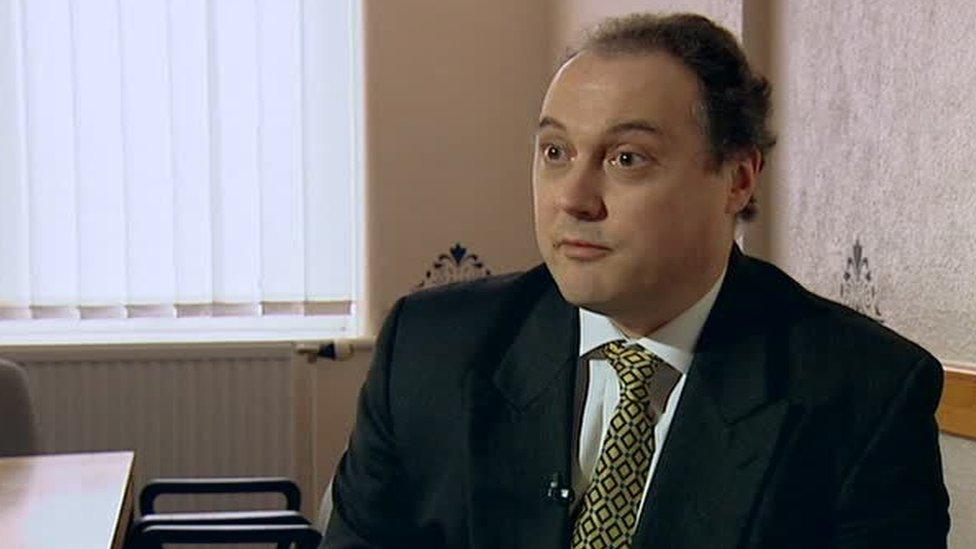Why are women in Glasgow striking over equal pay?
- Published
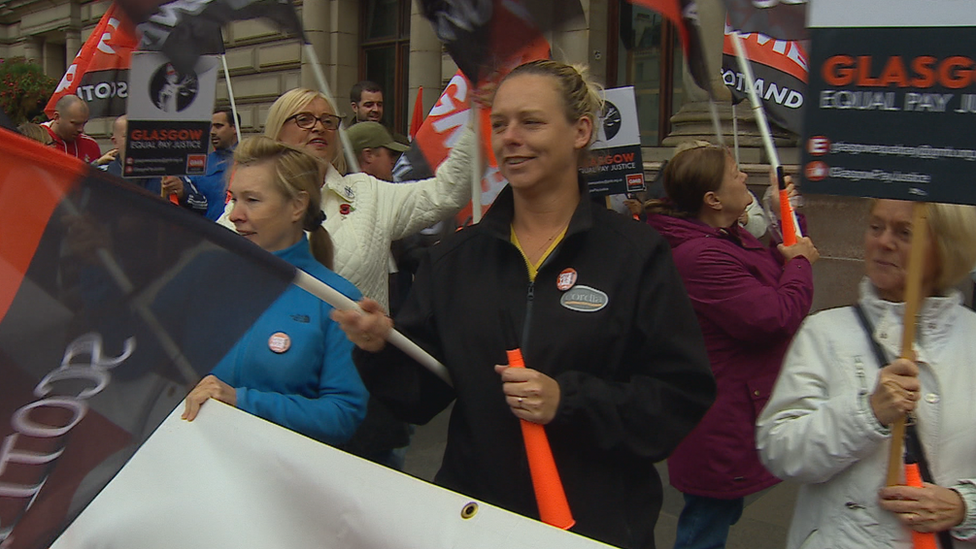
Women protested outside Glasgow City Chambers over the collapsed talks
Thousands of women in Glasgow including care workers and school cleaners are set to go on strike over an equal pay dispute with the city council.
The GMB union said 98% of those who voted supported the strike, which balloted about 2,800 members who work for council service provider Cordia.
The council said it has been working with the union to try to resolve a complicated problem.
It said strike action would not speed this up.
What's the dispute about?
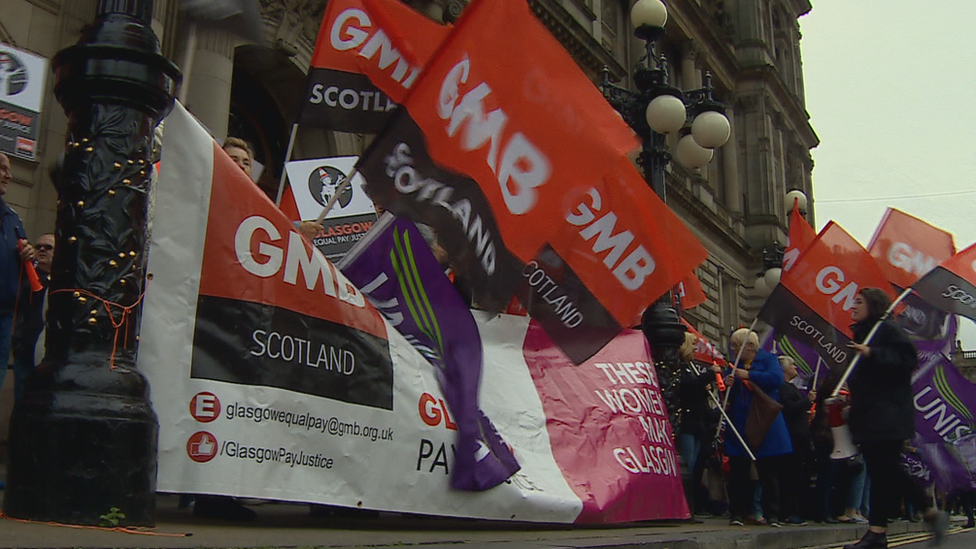
The union represents about 2,000 of the 12,000 low-paid women who have been pursuing equal pay claims against the council for more than a decade.
Glasgow City Council has promised to negotiate a settlement for the women, many of whom work for Cordia - an arms-length company that delivers a range of council services such as home care, catering and cleaning.
But the GMB, the Unison and Unite unions and legal campaign group Action for Equality said 10 months of talks had made "no progress" and they had now collapsed.
They said officials from the council had ended months of discussions to work out a deal behind closed doors instead.
Unison, which represents about 3,000 workers with claims, has also moved to a strike ballot which closes next week.
The unions said they were also concerned that the council could make individual offers to workers without a proper negotiated process.
They said this was unacceptable and against what had been previously agreed.
Glasgow City Council said it had committed to make an offer in December.
It added that strike action could not make the process move any faster.
Where did it all start?
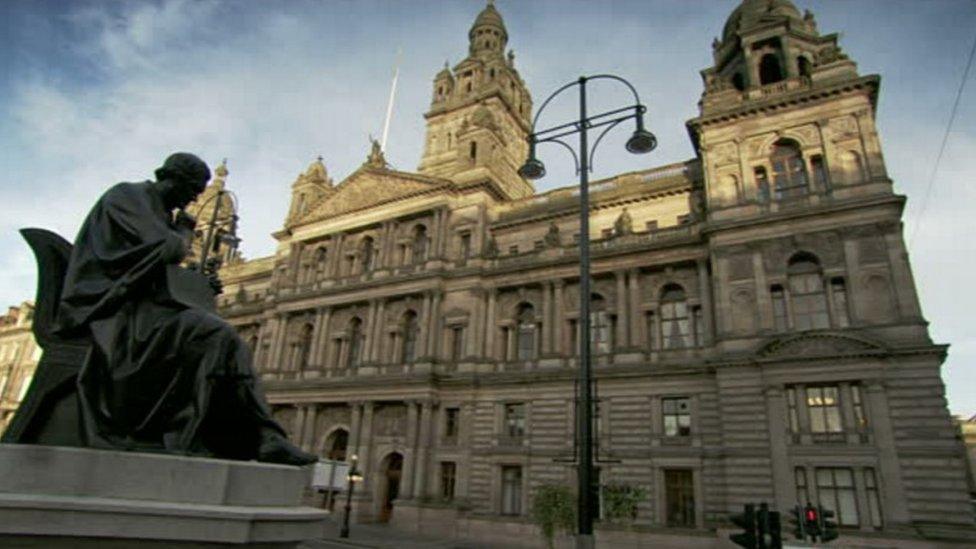
Glasgow City Council has committed to making an offer to workers in December
The problems arose from an earlier attempt to eliminate gender pay inequality.
A Job Evaluation Scheme was introduced in 2006, external with the aim of ensuring that men and women received equal pay for jobs of the same value.
However, the new system built in a three-year payment protection for men who lost out on bonuses, which was last year ruled discriminatory.
A long court battle has also raged over the design of the scheme itself.
It saw mainly female workers, in jobs such as catering, cleaning and care services, paid less than male workers in jobs that were deemed to be of equal value, such as refuse collection.
After years of employment tribunal and court battles, the council said earlier this year that "negotiation" would solve the dispute, which currently affects about 12,000 current and former employees.
Why has it dragged on so long?

Glasgow City Council leader Susan Aitken said substantial progress had been made
When the SNP's Susan Aitken became leader of Glasgow City Council in May last year she promised to reach a settlement and draw a line under what she called "a decade of litigation".
She said the previous Labour administration, which had run Glasgow for decades, had "wussed out of doing anything about it and kicked it down the road to the next person".
The GMB union said there had been a "legacy of failure" in dealing with the issue and that the council had preferred to fight the case in the courts rather than through negotiation.
How much will the claims cost?
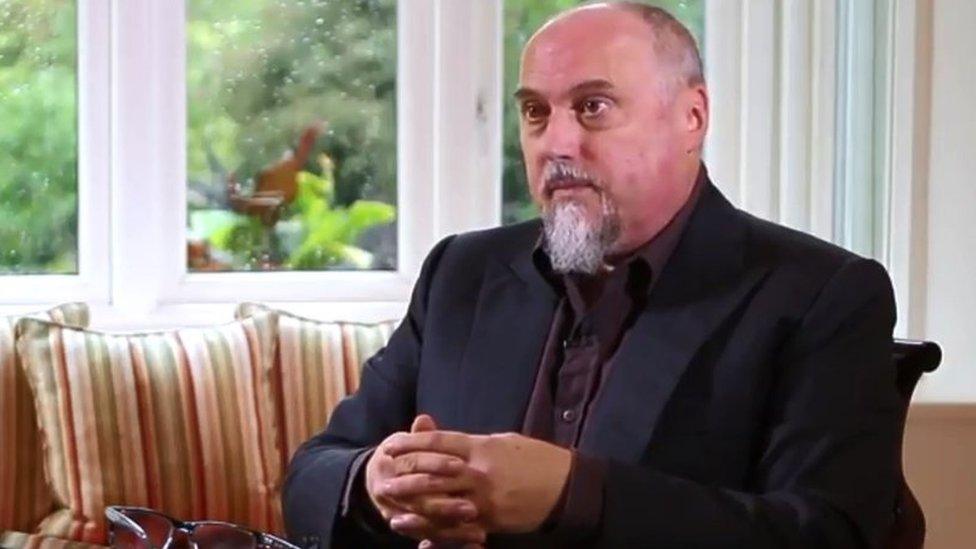
Stefan Cross also worked on the claim against Birmingham City Council
The lawyer acting for thousands of the low-paid women said it could cost Glasgow City Council between £500m and £1bn to fully settle the equal pay claims.
That figure includes years of back-pay and the extra cost of increasing pay when a new job structure is put in place.
Council leader Susan Aitken angered campaigners and unions last month when she rubbished the figures, saying they were "plucked out of thin air".
However, she refused to estimate how much the claims could cost.
Stefan Cross, of Action for Equality, which represents about 6,000 workers, said his team had spent hundreds of hours making detailed calculations.
Mr Cross said the equal pay claims go back 12 years and they are still continuing.
He said it could be another three years before the grading system was sorted out.
The lawyer gave the example of women being "systematically" paid £4,000 a year less than men.
He said that figure alone, multiplied by thousands of women over 15 years, would give an equal pay bill of £750m.
How will Glasgow pay for the settlements?

Ms Aitken said the council would not sell its Dali masterpiece

Glasgow City Council's leader said the payouts would have a "very significant impact on the council" for many years to come.
But she said the council was seeking to minimise the impact of jobs and services and ruled out selling off assets like Birmingham City Council did in 2013 when it was landed with a £1bn equal pay bill.
It was forced to sell off the the National Exhibition Centre to help pay its debts.
It has been suggested that Glasgow could sell off the SEC (Scottish Event Campus), which includes the Hydro Arena, or the Salvador Dali masterpiece Christ of St John of the Cross.
But Ms Aitken told BBC Radio's Good Morning Scotland: "We have not looked at selling assets at this stage.
"We are certainly not discussing flogging off the Dali."
Mr Cross said the Glasgow case was very similar to the Birmingham one, which he also worked on.
- Published24 August 2018
